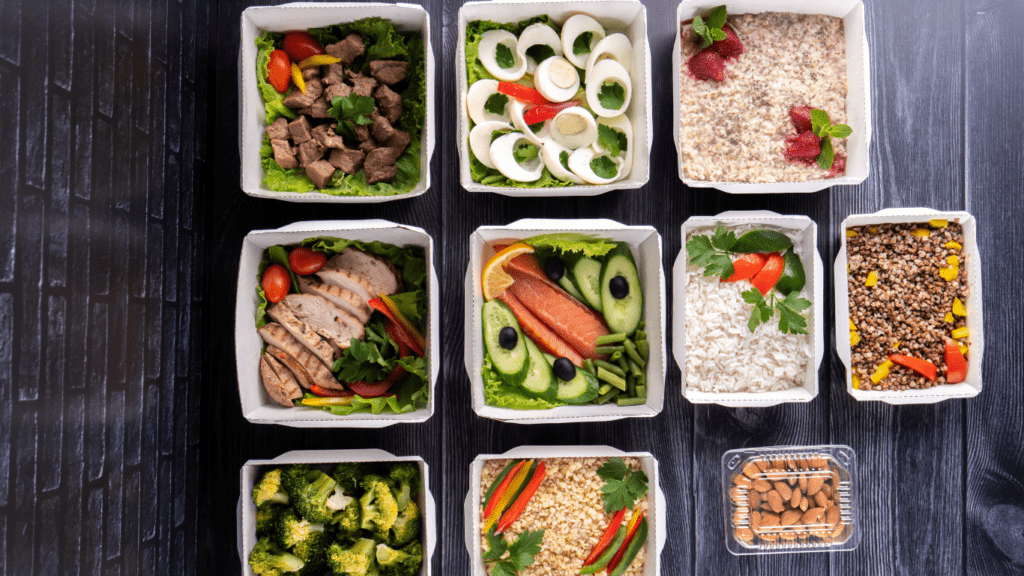Understanding Post-Workout Nutrition
Post-workout nutrition involves consuming the right nutrients to speed up recovery. After exercising, glycogen levels drop, making carbohydrate consumption crucial for replenishment. I recommend including complex carbs like whole grains and fruits for optimal glycogen recovery.
Protein is essential for muscle repair, and consuming it post-workout enhances protein synthesis. Choose lean protein sources like:
- chicken
- fish
- plant-based
alternatives to support muscle rebuilding.
Hydration is often overlooked but plays a key role in recovery. Drinking fluids with electrolytes after intense workouts helps restore fluid balance, preventing dehydration. Consider drinks like coconut water or sports beverages with added electrolytes.
Timing matters too; consuming a balanced meal or snack within 30 to 60 minutes post-exercise maximizes recovery benefits. This window allows your body to efficiently utilize nutrients for muscle repair and glycogen replenishment.
By understanding these core principles of post-workout nutrition, optimizing recovery becomes a structured approach rather than guesswork.
Importance of Refueling
Refueling after a workout can have a profound impact on recovery and performance. Understanding its significance might help you optimize your recovery process.
Muscle Recovery and Growth
Providing the body with the right nutrients can promote muscle recovery and growth. Consuming an adequate amount of protein, ideally from lean sources like chicken, fish, or plant-based options, aids in muscle repair. These proteins supply the amino acids needed to rebuild muscle fibers, supporting increased muscle mass and strength.
Replenishing Glycogen Stores
Engaging in exercise depletes glycogen stores in muscles. Eating carbohydrates post-workout can speed up the replenishment process. Complex carbs, such as whole grains and fruits, can effectively restore glycogen levels, supporting sustained energy for future activities.
Reducing Muscle Soreness and Fatigue
Proper refueling can minimize muscle soreness and fatigue by reducing inflammation and aiding in muscle repair. Including antioxidant-rich foods, like berries or dark leafy greens, in post-workout meals can lessen oxidative stress, enabling a quicker return to your fitness routine.
Key Nutrients for Recovery

Understanding the key nutrients for recovery enhances post-workout nutrition. Each nutrient plays a unique role in facilitating effective recovery and performance improvement.
- Proteins
Proteins support muscle repair and growth. Consuming 15-25 grams of protein post-exercise helps rebuild muscle fibers. Examples of protein sources include lean meats like chicken and turkey, fish, and plant-based options like lentils and tofu.
- Carbohydrates
Carbohydrates replenish glycogen stores. Eating 1.2 grams of carbs per kilogram of body weight shortly after exercise optimizes energy recovery. Complex carbs like brown rice, oats, and fruits deliver sustained energy and aid in faster recovery.
- Fats
Fats provide essential fatty acids and support nutrient absorption. Incorporating healthy fats post-workout enhances joint health and reduces inflammation. Sources include avocados, nuts, and olive oil, which supply necessary nutrients without hindering digestion or recovery.
- Hydration and Electrolytes
Hydration ensures optimal recovery by replacing fluids lost through sweat. Consuming water, along with electrolytes from sources like coconut water or sports drinks, restores fluid balance. Electrolytes like sodium and potassium prevent dehydration-related fatigue, promoting effective recovery.
Timing and Meal Composition
Consuming nutrients at the right time enhances recovery. The post-workout period is crucial for maximizing nutrient benefits.
Optimal Window for Nutrient Intake
Eating within 30 to 60 minutes post-exercise optimizes recovery. During this timeframe, muscles absorb nutrients more efficiently to replenish and repair. I intake a combination of carbohydrates and proteins immediately after my workout to leverage this window. This practice accelerates glycogen restoration and muscle protein synthesis.
Balancing Macronutrients
Balancing macronutrients is key for recovery. I ensure my post-workout meal includes carbohydrates and proteins, with moderate fats. Carbohydrates (e.g., whole grains and fruits) replenish glycogen stores, while proteins like chicken or tofu aid in muscle repair. Healthy fats in small amounts, such as those from nuts or avocados, support hormone balance and nutrient absorption.
Popular Post-Workout Nutrition Options
Choosing the right post-workout nutrition strategies can significantly impact recovery. Let’s explore some effective options for refueling after exercise.
Protein Shakes and Smoothies
Protein shakes and smoothies offer a convenient way to intake essential nutrients quickly. Using whey or plant-based protein powder provides high-quality protein vital for muscle repair and growth. Adding fruits like bananas or berries enhances carbohydrate content, aiding glycogen replenishment. Including a source of healthy fats, such as almond butter, improves nutrient absorption.
Whole Food Options
Whole foods deliver comprehensive nutrition and great taste post-exercise. Grilled chicken with quinoa or salmon with sweet potatoes supplies both protein and complex carbs. For a plant-based option, a chickpea and brown rice dish achieves similar benefits. Whole foods also include important vitamins and minerals naturally, supporting overall health.
Supplements
Supplements can complement whole foods for optimal recovery. Branched-chain amino acids (BCAAs) assist in reducing muscle soreness. Creatine supports increased strength and muscle mass. Omega-3 supplements, derived from fish oil, help reduce inflammation. When aiming for quick recovery, choosing the appropriate supplements alongside nutritious meals enhances results.
Common Mistakes to Avoid
Mistakes in post-workout nutrition can slow recovery. One major error is neglecting the timing; consuming nutrients beyond 60 minutes post-exercise lowers the potential recovery benefits. Another slip-up involves ignoring protein intake; without enough protein, muscle repair and growth are compromised.
Opting for simple sugars over complex carbohydrates fails to effectively replenish glycogen stores, impacting energy levels. Inadequate hydration is also a frequent issue; without consuming enough fluids, rehydration and performance suffer. Lastly, skipping antioxidants reduces the body’s ability to fight inflammation, prolonging soreness and fatigue. Avoid these common pitfalls to enhance recovery and get the full benefits of your workouts.

 Kirstiella Wagnerson’s expertise in sports psychology has been a cornerstone of Make Athlete Action, where she has contributed valuable insights into the mental aspects of athletic performance. Her knowledge of motivation, focus, and mental resilience empowers athletes to overcome challenges and reach their goals. Kirstiella’s engaging content on mental toughness and motivation offers readers practical strategies to boost their mindset, helping them stay motivated and focused. Her dedication to the psychological well-being of athletes has made Make Athlete Action a comprehensive platform for both physical and mental fitness.
Kirstiella Wagnerson’s expertise in sports psychology has been a cornerstone of Make Athlete Action, where she has contributed valuable insights into the mental aspects of athletic performance. Her knowledge of motivation, focus, and mental resilience empowers athletes to overcome challenges and reach their goals. Kirstiella’s engaging content on mental toughness and motivation offers readers practical strategies to boost their mindset, helping them stay motivated and focused. Her dedication to the psychological well-being of athletes has made Make Athlete Action a comprehensive platform for both physical and mental fitness.